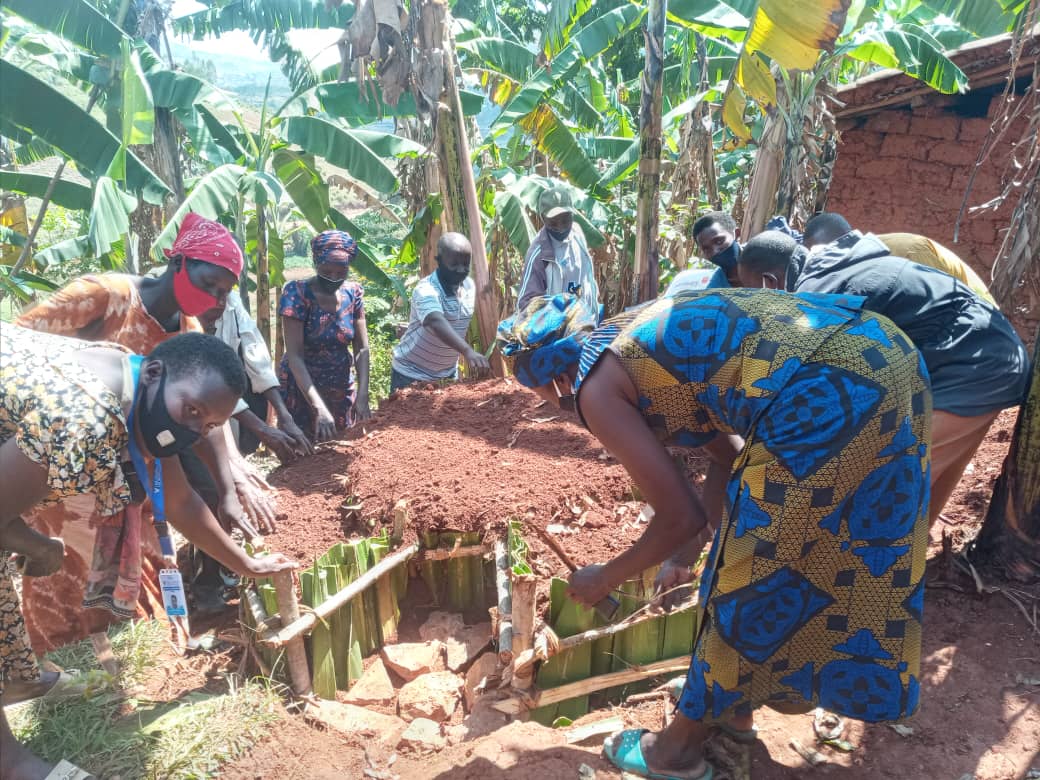Background
Sugira Muryango is a home-visiting intervention designed to improve responsive parenting, promote play in early child development and prevent violence in the home through active coaching and father engagement for Rwanda’s most vulnerable families. Sugira Muryango 12 modules are delivered weekly over three months by trained government workforce, Inshuti z’Umuryango (IZU) and engages male and female caregivers, covering topics such as responsive caregiving; improved nutrition; hygiene; help-seeking behaviors, early stimulation; problem solving; conflict resolution; shared decision making; and father involvement in play, child care and household responsibilities sharing
Sugira Muryango began in Rwanda in 2011 as a Family Strengthening Intervention for Families affected by HIV. The program was supporting the HIV affected families by reaching them with modules on how to manage stressors, solve problems they do meet in their daily lives as well as how they can remain strengthened using the available resources. From 2011-2014 the program responded to in country priorities in that angle of supporting the HIV affected families members to develop resilience. In this same period, the program developed and tested the Early Childhood Development and parenting focused manual and measures.
From 2014-2018, two Pilot studies were conducted with 20 VUP Households and 38 VUP Households respectively. The studies were specific to enable the vulnerable population caregivers/parents with capabilities of dealing with hardships of life and parenting to remain in a good position of offering an improved early childhood development integrated services to their children. This research informed the Cluster Randomized Trial which followed between 2018-2019. At this time, the study expanded to more number of families to test the viablity of the intervention. The 2018-2019 Cluster Randomised Trial (CRT) led to the Sugira Muryango Expansion Program from 2020.
Current Situation
The 2020 Sugira Muryango Expansion program reaches the vulnerable families having children of 0 to 3 years with early childhood development interventions. The program lays its focus in capacitating caregivers on integrated early childhood development and family resilience skills, engaging both males and females in early childhood development, and insisting the violence prevention. The program works with community lay-workers (IZU) trained to deliver sessions including early stimulation promotion, importance of good nutrition, good hygiene, good health, non-violent discipline and responsive parenting among others. The beneficiary families benefit not only the supportive skills provided through 12 Sugira Muryango modules but also the problem solving support from the community existing interventionists (IZU) who advocate and avail the process of continuously benefiting the community based resources and solutions. The interventions under this program are reaching the vulnerable families of 0 to 3 year children from all sectors of Rubavu, Ngoma and Nyanza districts.
Programming Strategies
Community Based Interventionists: Sugira Muryango early childhood development and family resilience modules are delivered by the community based lay-workers (Inshuti z’Umuryango/IZU) which eases the delivery of interventions through contextualized mode. The use of community lay workers also assures the sustainable impacts of the program since with the phase out, the community will obviously remain supported by these interventionists.
PLAY Collaborative Model: Sugira Muryango Expansion program is characterised of implementation and Collaborative Team Approach (CTA) strategy of the Promoting Lasting Anthropometric Change and Young Children’s Development (PLAY) Collaborative – to ensure quality improvement while scaling the program. Through this model, the program learns from Rwanda based leadership on all levels to back their pieces of advice and expertise in implementation. With this model also, the cross-site learning is considered to reflect the best practices across the programming areas.



